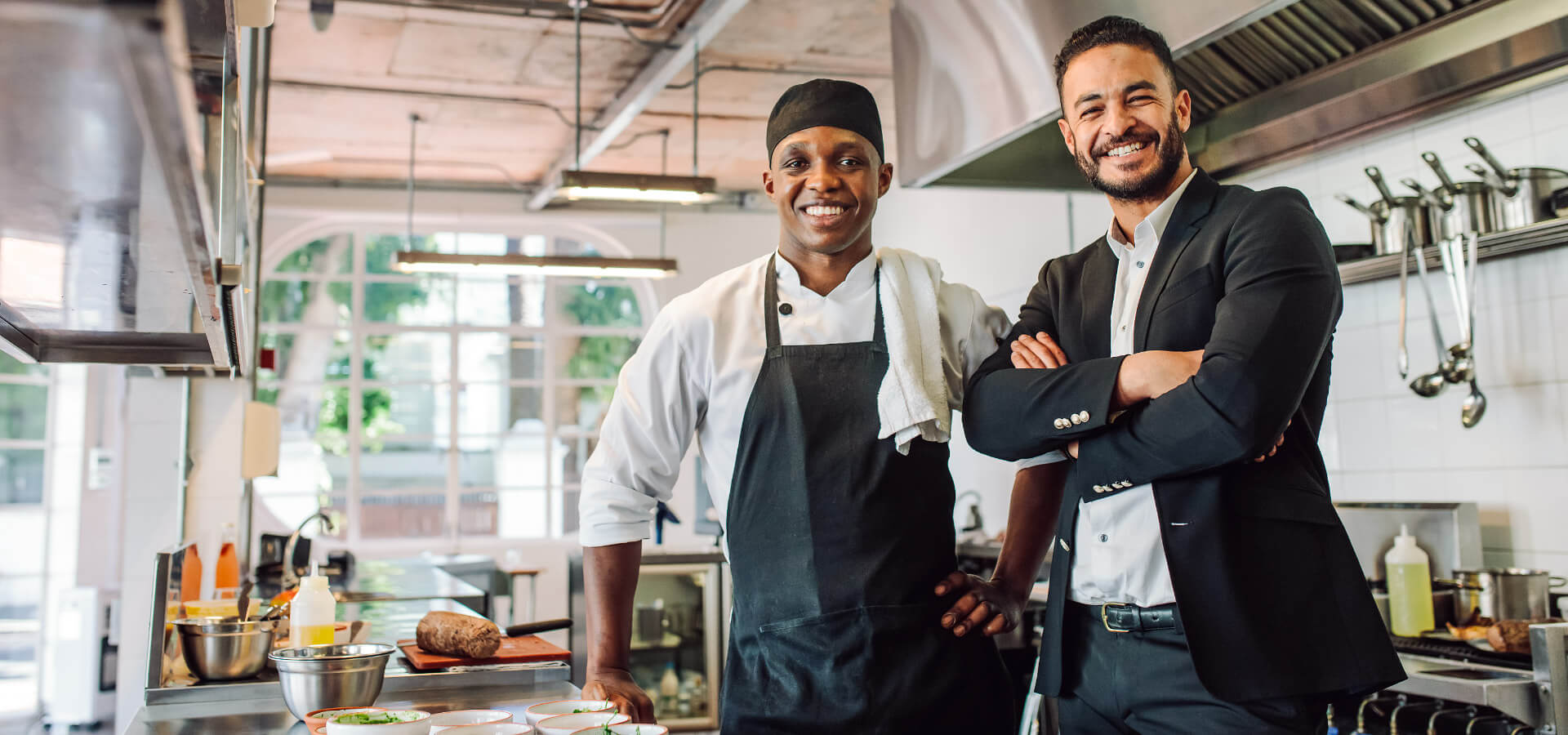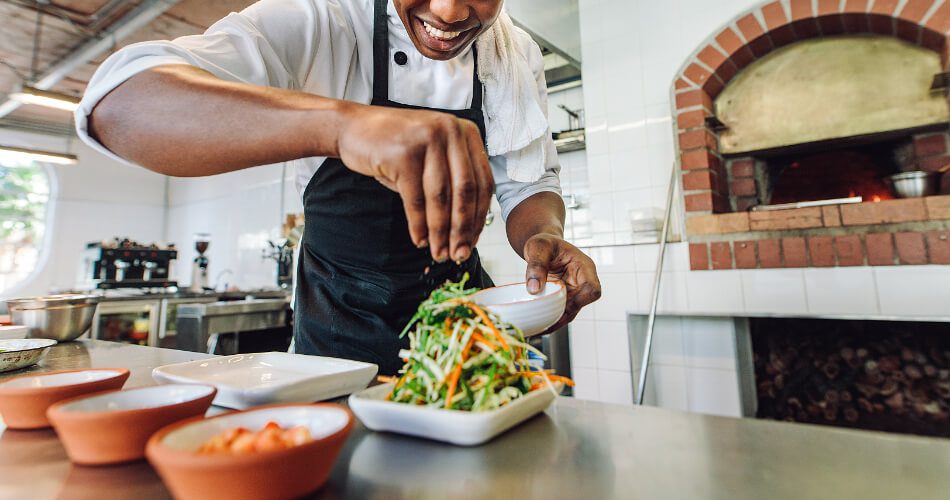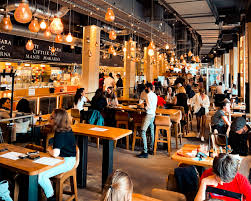Hello!
Restaurants today face immense competition, not just from other dining establishments but also from third-party delivery services. An effective SEO strategy is crucial to stand out and attract customers. This comprehensive guide covers everything restaurants need to know about optimizing their online presence in 2024.
What is Restaurant SEO?
SEO stands for search engine optimization. It refers to strategies and techniques to improve a website’s rankings in search engines like Google. The goal is to appear higher in search results for relevant keywords so more people can find and visit your site.
 For restaurants specifically, SEO ensures your business appears prominently when potential customers search for dining options online. Whether someone looks for “Italian restaurants near me” or “best pizza in town”, you want your restaurant to appear on the first page of Google results. Ranking high increases your visibility, drives site traffic, and ultimately brings in more reservations and orders.
For restaurants specifically, SEO ensures your business appears prominently when potential customers search for dining options online. Whether someone looks for “Italian restaurants near me” or “best pizza in town”, you want your restaurant to appear on the first page of Google results. Ranking high increases your visibility, drives site traffic, and ultimately brings in more reservations and orders.
Why Restaurant SEO Matters
 Here are some key reasons SEO should be a priority for restaurant owners and operators:
Here are some key reasons SEO should be a priority for restaurant owners and operators:
- 46% of all Google searches are for local businesses and services. Capturing this demand can significantly boost customer acquisition.
- 75% of users never scroll past the first page of search results. If your site doesn’t rank in the top spots, you miss out on visibility.
- 90% of clicks go to the top 5 organic results on page 1. Ranking on the first page is good, but aiming for the top 5 positions is ideal.
- Higher-ranking sites see more traffic. For example, the #1 result gets over 30% of clicks for that query. More visibility means more opportunities to attract diners.
- Sites that rank well build authority and trust. This establishes your restaurant as a recognized player in the local dining scene.
- Competing with third-party delivery apps requires strong SEO. You want customers to find your site instead of just appearing on aggregators.
Simply put, SEO is essential for helping new diners discover your restaurant online among endless options. It affects your discoverability, reputation, website traffic, and revenue. Optimizing your online presence is well worth the effort.
Restaurant SEO Best Practices
 Follow these key steps recommended by experts to optimize your restaurant’s SEO:
Follow these key steps recommended by experts to optimize your restaurant’s SEO:
Conduct keyword research
The first step is researching relevant keywords diners may use when searching for restaurants.
Identifying high-volume, informative keywords helps optimize pages with the right terms. Use Google’s Keyword Planner or SEMrush to find valuable search terms.
Optimize website content
Incorporate target keywords into strategic parts of your website, like page titles, headers, image alt text, and on-page content. Do this naturally – don’t just stuff keywords. Write useful content optimized for what users search for.
Improve local SEO
 The accuracy and completeness of your Google My Business listing are key. Also, ensure NAP (name, address, phone) consistency across directories like Yelp. Local signals like reviews help SEO.
The accuracy and completeness of your Google My Business listing are key. Also, ensure NAP (name, address, phone) consistency across directories like Yelp. Local signals like reviews help SEO.
Get backlinks
Earn high-quality backlinks from industry sites, local directories, and mentions on reputable sites. Backlinks signal authority and help pages rank better.
Prioritize mobile optimization
With mobile usage rising, ensure your site is mobile-friendly and fast-loading on all devices. Mobile-friendliness is a ranking factor for Google.
Analyze site performance
Use tools like Google Analytics and Search Console to identify issues negatively impacting SEO, like slow pages, errors, lack of backlinks etc. Then fix them.
Create unique content
 Compose menus, blogs, and events pages with original text and media. Search engines reward uniqueness and personalized content on each page.
Compose menus, blogs, and events pages with original text and media. Search engines reward uniqueness and personalized content on each page.
By focusing on these SEO foundations, restaurants can improve their visibility and brand awareness among local diners searching online.
6 Restaurant SEO Tips to Outrank Competitors
Beyond the basics, restaurants must go above and beyond to rank higher than competitors. Try these pro tips:
Target multiple keyword match types
When someone searches “pizza restaurants Vancouver”, that’s a broad match keyword. The exact match would be queries with that precise term. But you also want to target close variants like “good pizza places Vancouver” or “top Vancouver pizza restaurants”. Optimize for broad, exact, and phrase-match keywords relevant to your business.
Create optimized landing pages
Target specific high-value keywords with tailored landing pages. For instance, “pizza party catering” could have a dedicated page discussing your catering options. This provides a focused user experience for that search term vs. trying to target it on your homepage.
Differentiate with unique content
 Don’t just write the basics about your restaurant. Create unique value-driven content on your blog, events page, or “Our Story” page highlighting your specialties, chef profiles, secret family recipes, etc. Search engines reward original, fresh content.
Don’t just write the basics about your restaurant. Create unique value-driven content on your blog, events page, or “Our Story” page highlighting your specialties, chef profiles, secret family recipes, etc. Search engines reward original, fresh content.
Get local press mentions
In addition to backlinks on dining review sites, aim for features on highly authoritative local news and media outlets. Landing a write-up on a top local publication can be a nice ranking boost.
Optimize for voice search questions
An increasing number of searches are by voice commands. Optimizing for question-based keywords like “Where can I order pizza in Seattle?” improves voice search visibility.
Use structured data markup
Add JSON-LD or schema markup to your site code. This helps search engines better understand your content and lift your SERP rankings, especially in rich results like carousels.
By identifying and targeting valuable keywords that set you apart while providing engaging content, restaurants can edge past the competition.
Local SEO Tips for Restaurants
 Local SEO is a key strategy restaurants must prioritize. Here are some local search engine optimization tips:
Local SEO is a key strategy restaurants must prioritize. Here are some local search engine optimization tips:
- Complete and optimize your Google My Business profile with keywords in the description, menus, photos etc. This is key real estate for local packs.
- Be consistent with NAP across directories (name, address, phone number). Inconsistencies can negatively impact local rankings.
- Ensure your website has a local address, phone number and area you serve on every page. Don’t just list this on a Contact Us page.
- Include your city and neighborhood name in page titles and on pages like “About Us” – e.g. “Best Italian Restaurant in Downtown Austin”.
- Get customer reviews on Google, Facebook, Yelp. Positive local reviews help visibility.
- Partner with local businesses to get backlinks from neighborhood directories or event calendars.
- Sponsor local events to get backlinks on event websites while also building community connections.
- Pitch yourself as experts for interviews with local media outlets – television, radio, newspapers etc.
- List events, specials or new menu launches on Eventbrite. This helps local SEO.
Optimizing for local search terms tailored to your city gives you an edge over chains without that personal touch. Follow these tips to stand out in local restaurant SEO.
How to Monitor Your Restaurant’s SEO Performance
To gauge the success of your optimization efforts, you need to actively monitor key SEO metrics.
 Here are top analytics to track:
Here are top analytics to track:
- Organic traffic – Measures visitors coming from search engines to your site. Increased organic traffic indicates better rankings.
- Keyword rankings – Check where you rank in Google for target keywords. Aim for top 3. Use tools like SEMrush or Ahrefs to track rankings over time.
- Backlinks – Monitor backlink growth with SEMrush or Moz. More quality backlinks help improve rankings.
- Site speed – Page load times impact SEO. Use Google PageSpeed Insights to check your site. Faster is better.
- Mobile user metrics – Google Analytics shows mobile vs. desktop users. Higher mobile numbers are good as Google prioritizes mobile SEO.
- Site indexation – Ensure Google has fully indexed all pages using Google Search Console. Limited indexing hampers visibility.
- Ranking competitors – See where competitors place for common keywords. You can outperform them with the right SEO efforts.
Regularly analyzing these metrics from Google Analytics, Search Console, and third-party tools gives insights into improving your ongoing SEO plan.
Conclusion
In an increasingly digital world, restaurants rely on strong SEO to consistently drive new customers from search engines. By mastering core techniques like keyword optimization, quality backlinks, and local search visibility while providing fresh engaging content, restaurants can outperform competitors.
Tracking relevant metrics allows data-driven optimization while outsourcing to experts offers bandwidth for in-depth technical and content audits.
With proper planning and execution, restaurant SEO delivers tangible ROI in the form of higher brand awareness, lower cost customer acquisition and ultimately increased reservations and orders. By treating SEO as an ongoing process rather than a one-time effort, restaurants can thrive for the long term.
Thank you!
Join us on social media!
See you!






